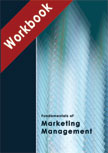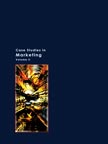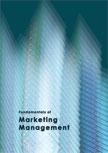Innovative Marketing Strategies of Lush Fresh Handmade Cosmetics
|
|
ICMR HOME | Case Studies Collection
Case Details:
Case Code : MKTG160
Case Length : 21 Pages
Period : 2002-2006
Pub Date : 2007
Teaching Note :Not Available
Organization : Lush Fresh Handmade Cosmetics
Industry : Beauty care / Cosmetics
Countries : UK, Europe, USA
To download Innovative Marketing Strategies of Lush Fresh Handmade Cosmetics case study
(Case Code: MKTG160) click on the button below, and select the case from the list of available cases:


Price:
For delivery in electronic format: Rs. 400;
For delivery through courier (within India): Rs. 400 + Shipping & Handling Charges extra
» Marketing Case Studies
» Marketing Management Short Case Studies
» Case Studies Collection
» ICMR HOME
» Marketing Management Short Case Studies
» View Detailed Pricing Info
» How To Order This Case
» Business Case Studies
» Area Specific Case Studies
» Industry Wise Case Studies
» Company Wise Case Studies
Please note:
This case study was compiled from published sources, and is intended to be used as a basis for class discussion. It is not intended to illustrate either effective or ineffective handling of a management situation. Nor is it a primary information source.
Chat with us

Please leave your feedback

|
|




<< Previous
You're not Supposed to Eat it! Contd...
|
The products were heaped up on wooden tables in the form of an old-fashioned
delicatessen.7 The products had minimal packaging or no packaging at all. Some
products were even shaped like huge cakes and cut and priced on weight. The
company did not market its products in the traditional manner but relied on
in-store advertising, word-of-mouth advocacy8 and public relations (PR). Lush had
developed an evangelical customer base, which included many celebrities. Experts
felt that Lush was a cult brand that differentiated itself from other retailers
of beauty products due to its innovative products, superior customer service,
and unconventional marketing approach.
|

|
However, some analysts felt that the absence of a regular marketing department
might prove counterproductive for the company. Some critics also felt that
Lush, which had thus far remained an independent, private firm, could
jeopardize its chances of staying competitive in the long run if it did not
go public. This was because Lush had to compete with many established
competitors with a large marketing and financial muscle. The competition in
the ethical cosmetics market was also expected to increase in the future.
|
|
Background Note
Lush was the brainchild of Constantine (born 1952), who was a
hairdresser by training. He developed an interest in makeup at the age
of 14, but as there were limited opportunities for male makeup artists
during that time, he trained in hairdressing and trichology9 at the
Institute of Trichologists.10 After a stint at an Elizabeth Arden
hairdressing salon,11 and some free-lance assignments with some of
London's premier hair salons, he established a beauty business called
Constantine and Weir Plc (C&W) with his friend Elizabeth Weir (Weir) in
1976.12 |
Constantine and his creative team at C&W started developing a
range of bath and body products which they manufactured in a workshop in Poole,
Dorset, UK. C&W also started supplying these natural-based cosmetic products to
a number of retailers...
Excerpts >>
|
|










